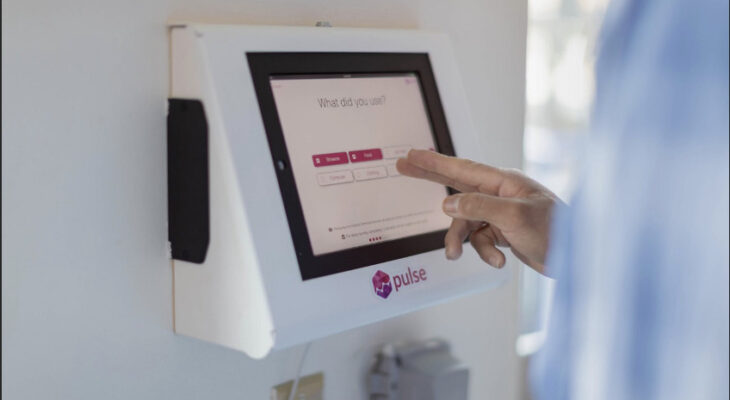When collecting feedback from a group of people, offering them the option to submit anonymous feedback usually increases the chances that you’ll get valuable feedback. Ultimately, there are many ways to collect feedback from people, including handing out physical surveys, asking them to share their feedback face-to-face or monitoring conversations. Nevertheless, when you have systems in place for anonymous feedback, you create a safe space where your respondents can feel comfortable being honest with you.
Having a feedback system is important for any company. If you want to improve the way you run your organization or boost the quality of products or services that you provide, then you need to collect feedback both from your clients and your employees. Collecting this feedback is ten times more important for organizations that serve vulnerable populations, such as homeless shelters, refugee camps and domestic violence shelters. These organizations make a huge positive impact on the lives of the people they serve. As a result, it’s important for such an organization to understand how these people feel about the services they’re receiving.
Beyond highlighting how effective your services are at the moment, creating a feedback system also gives you valuable insights that you can use to improve these services in the future. When you serve a vulnerable population, failing to put a feedback system in place can have negative effects on your services as well as the people you serve.
What you risk without a feedback system
-
Poor services
When you don’t take time to collect feedback, you’ll find yourself providing services that you think your community needs instead of what they actually need. After all, if you haven’t taken time to find out what matters to your community members, how can you fulfill their needs? In order to develop services that make a difference in these people’s lives, you need to start by taking time to find out what matters to them. On the other hand, collecting feedback can give you the opportunity to improve your services and meet needs that you wouldn’t have known about otherwise.
-
Misallocation of resources
In the same way that failing to collect feedback can compromise the quality of your services, it can also result in you setting aside resources for services that your community doesn’t actually need. In other words, you’ll end up wasting time and money on things that don’t matter to the people you’re serving. By developing a feedback system, you can get information about the services that are worthwhile from the same people who are receiving those services.
-
Community members feeling unseen
While you don’t have a responsibility to consult the people you’re serving, they can actually feel invisible if you don’t seek their opinion. Asking for feedback might seem like such a small thing, but it makes a world of a difference, especially when you really want to create a sense of community among the people you serve. By asking for someone’s feedback, you’re telling them that they matter in the bigger picture, and you care about what they think. Taking feedback seriously also communicates a willingness, even an eagerness, on your part to make changes to better serve this community.
As we’ve already said, all feedback systems are not equal. In order to collect meaningful feedback, you should consider implementing an anonymous feedback system.
Benefits of anonymous feedback
-
Increases engagement
Quite simply, offering anonymous channels of feedback increases the chances that you’ll receive any feedback to begin with. When people know that you’ve created a safe space where they can share their thoughts freely, they’re more likely to tell you what they think. Developing an anonymous feedback system actually encourages community members to contribute their thoughts without fear of retribution.
-
Results in more honest replies
By building an anonymous system for giving feedback, you can ensure that you get the replies that you need to improve your services. People are more likely to share their true thoughts with you when they know they’re not being watched, and their replies can’t be traced back to them. For this reason, community members will tell you what they really think of your services. Additionally, they’ll feel safe enough to offer suggestions regarding aspects of your services that you can improve on.
-
Shows you care
Offering your community a variety of feedback channels, including an anonymous one, shows them that you care about their peace of mind. Once community members can see that you’re happy to do what it takes to make sure they’re comfortable, they’re more likely to open up.
How Pulse For Good helps organizations with anonymous feedback
Pulse For Good has built kiosks that are designed to eliminate the need for someone to walk from community member to community member collecting feedback. Rather, each kiosk is simply mounted on the wall at a specific organization and community members are encouraged to leave anonymous feedback at their convenience. With the knowledge that their feedback will be kept anonymous, community members feel more free to share their true feelings as well as suggestions for improvement. On the other hand, that person who would’ve spent hours sitting with community members to help them fill surveys can spend that time on a more meaningful task.
The Pulse For Good kiosks are built to be intuitive enough for people to use without assistance from anyone, so filling surveys is simple and fast.
The benefits of an anonymous feedback system for vulnerable populations
It’s true that the Pulse For Good kiosks don’t have the same human touch as someone walking to you and asking you to fill a survey. Even so, community members who use this system have reported feeling cared for and involved in improving the organizations that serve them.
As one community member shared:
“I was reading through the questions and I realized, hey, I can have some input here. Maybe they’ll do something about what I have to say. And they have. It’s nice to have an input and to know that the staff and directors will get a chance to hear my input and my concerns about what goes on around here. It’s kind of nice to be heard.”
Pulse For Good goes a long way towards helping members of vulnerable populations to feel seen and heard. It gives them a safe space where they can share their thoughts and contribute towards the improvement of services that impact them. This intuitive feedback system also helps organizations to be able to share information about the impact they’re having on the communities they serve with major stakeholders. This information gives stakeholders the confidence that the organization has what it takes to serve the community. The feedback from the community also helps stakeholders to identify areas where they can help the organization to do better for the people they serve.
While Pulse For Good is built on a network of machines, it humanizes the organizations that use it by giving them a snapshot into the lives of their community members. As someone who serves a vulnerable population every day, it’s easy to get desensitized to their struggles, but the data collected by Pulse For Good really highlights these challenges. This feedback system also reminds the staff and volunteers of what really matters to vulnerable populations at the end of the day.
Want to know more about Pulse For Good? You can visit their website and sign up for a kiosk here.





